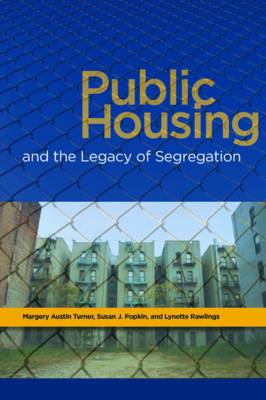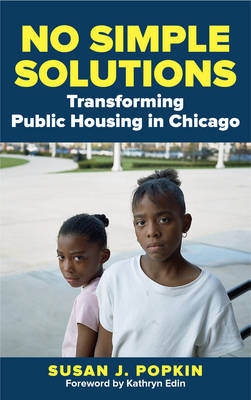Urban Institute Press
2 total works
Public Housing and the Legacy of Segregation
by Margery Austin Turner, Susan J. Popkin, and Lynette A. Rawlings
Published 16 December 2008
For the past two decades the United States has been transforming distressed public housing communities, with three ambitious goals: replace distressed developments with healthy mixed-income communities; help residents relocate to affordable housing, often in the private market; and empower former public housing families toward economic self-sufficiency. The transformation has focused on deconcentrating poverty, but not on the underlying role of racial segregation in creating these distressed communities. In Public Housing and the Legacy of Segregation, scholars and public housing officials assess whether-and how-public housing policies can simultaneously address the problems of poverty and race.
In this book, Sue Popkin tells the story of how an ambitious-and risky-social experiment affected the lives of the people it was ultimately intended to benefit: the residents who had suffered through the worst days of crime, decay, and rampant mismanagement of the Chicago Housing Authority (CHA), and now had to face losing the only home many of them had known. The stories Popkin tells in this book offer important lessons not only for Chicago, but for the many other American cities still grappling with the legacy of racial segregation and failed federal housing policies, making this book a vital resource for city planners and managers, urban development professionals, and anti-poverty activists.

